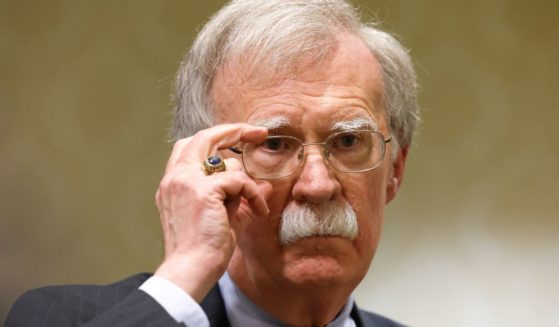European Union Looks To Shield Companies from US Sanctions
The European Union on Friday advanced two measures that could help the bloc’s firms avoid possible U.S. sanctions if they continue to do business in Iran, directly challenging Washington’s campaign to isolate Tehran economically.
Both proposals are part of the EU’s effort to salvage the 2015 Iran nuclear deal, which offers Tehran sanctions relief and increased trade in exchange for limits on its nuclear program.
President Donald Trump withdrew the U.S. from the deal on May 8 and re-imposed sanctions on Iran, including the possibility of secondary penalties for overseas firms that do business there.
The move outraged the European signatories to the deal — Britain, France and Germany — in large part because they have built lucrative trading ties with Iran in the years since the agreement was enacted. Now, the EU is pushing back against Washington with proposals that could allow European firms to maintain those ties.
One proposal is to reactivate the EU’s so-called “blocking statute,” a rule that prevents European companies and courts from complying with foreign sanctions laws.
It was last used in 1996 to work around the U.S. trade embargo of Cuba, ultimately leading to a political agreement with Washington that shielded European companies from secondary sanctions.
“We have the duty, the Commission and the European Union, to protect our European businesses,” European Commission President Jean-Claude Juncker said Thursday, according to Politico.
“We must act now and we will act now,” he added. “That’s why we are launching the process to use the 1996 ‘blocking statute’ to neutralize the extraterritorial effects of U.S. sanctions on European companies.”
To make the blocking statute apply to the Trump administration’s Iran sanctions, the law has to be updated through a vote in the European Parliament. The process could take up to two months, but a second trade proposal announced Friday would have a more immediate effect.
The European Commission will ask member states to make direct cash transfers to Iran’s central bank to avoid U.S. penalties. Doing so would allow European companies to pay Iran for oil exports and repatriate Iranian funds in Europe, according to EU officials.
“Commission President Jean-Claude Juncker has proposed this to member states,” a senior EU official involved in the discussions told Reuters. “We now need to work out how we can facilitate oil payments and repatriate Iranian funds in the European Union to Iran’s central bank.”
It is unclear how effective either measure will be at maintaining European trade with Iran or protecting the bloc’s firms from secondary sanctions, given Washington’s influence over international finance.
Many of Europe’s large, multinational firms will likely choose to wind down their operations in Iran rather than risk their more profitable business in the U.S.
Ultimately, the blocking statute might not change the decision-making of European companies when it comes to doing business in Iran, said Valdis Dombrovskis, the EU’s vice president in charge of financial services.
“Indeed the EU blocking regulation could be of limited effectiveness there, given the international nature of banking system and especially the exposure of large systemic banks to U.S. financial system and U.S. dollar transactions,” Dombrovskis told the European Parliament Thursday, according to Reuters.
A version of this article appeared on The Daily Caller News Foundation website.
Content created by The Daily Caller News Foundation is available without charge to any eligible news publisher that can provide a large audience. For licensing opportunities of our original content, please contact licensing@dailycallernewsfoundation.org.
Truth and Accuracy
We are committed to truth and accuracy in all of our journalism. Read our editorial standards.
Advertise with The Western Journal and reach millions of highly engaged readers, while supporting our work. Advertise Today.












